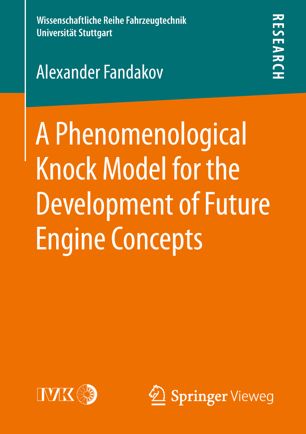

Most ebook files are in PDF format, so you can easily read them using various software such as Foxit Reader or directly on the Google Chrome browser.
Some ebook files are released by publishers in other formats such as .awz, .mobi, .epub, .fb2, etc. You may need to install specific software to read these formats on mobile/PC, such as Calibre.
Please read the tutorial at this link: https://ebookbell.com/faq
We offer FREE conversion to the popular formats you request; however, this may take some time. Therefore, right after payment, please email us, and we will try to provide the service as quickly as possible.
For some exceptional file formats or broken links (if any), please refrain from opening any disputes. Instead, email us first, and we will try to assist within a maximum of 6 hours.
EbookBell Team

0.0
0 reviewsThe majority of 0D/1D knock models available today are known for their poor accuracy and the great effort needed for their calibration. Alexander Fandakov presents a novel, extensively validated phenomenological knock model for the development of future engine concepts within a 0D/1D simulation environment that has one engine-specific calibration parameter. Benchmarks against the models commonly used in the automotive industry reveal the huge gain in knock boundary prediction accuracy achieved with the approach proposed in this work. Thus, the new knock model contributes substantially to the efficient design of spark ignition engines employing technologies such as full-load exhaust gas recirculation, water injection, variable compression ratio or lean combustion.
About the Author
Alexander Fandakov holds a PhD in automotive powertrain engineering from the Institute of Internal Combustion Engines and Automotive Engineering (IVK) at the University of Stuttgart, Germany. Currently, he is working as an advanced powertrain development engineer in the automotive industry.